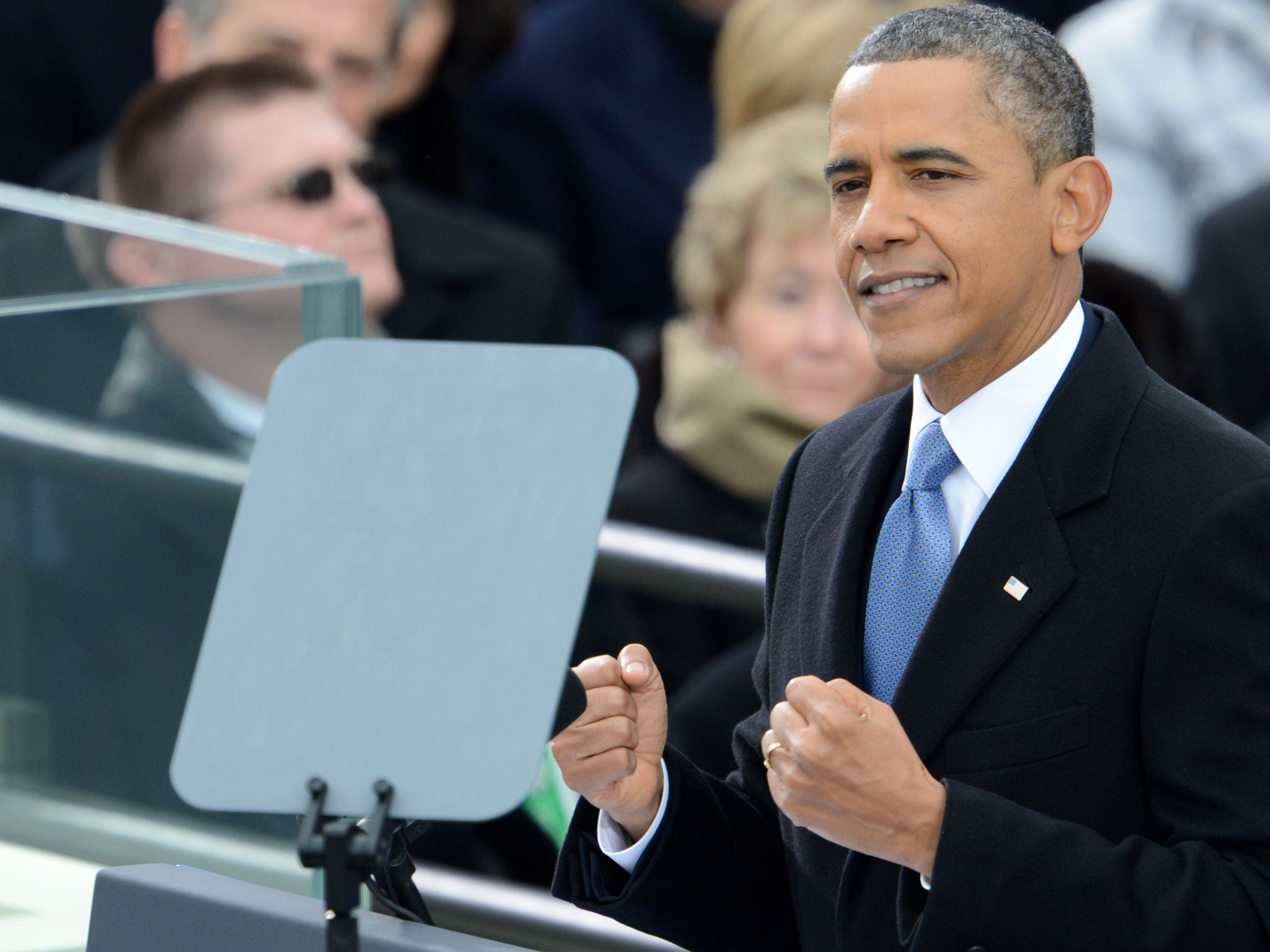Second inaugural addresses: fraught with difficulty and rarely memorable

Your support helps us to tell the story
From reproductive rights to climate change to Big Tech, The Independent is on the ground when the story is developing. Whether it's investigating the financials of Elon Musk's pro-Trump PAC or producing our latest documentary, 'The A Word', which shines a light on the American women fighting for reproductive rights, we know how important it is to parse out the facts from the messaging.
At such a critical moment in US history, we need reporters on the ground. Your donation allows us to keep sending journalists to speak to both sides of the story.
The Independent is trusted by Americans across the entire political spectrum. And unlike many other quality news outlets, we choose not to lock Americans out of our reporting and analysis with paywalls. We believe quality journalism should be available to everyone, paid for by those who can afford it.
Your support makes all the difference.The second inaugural address has rarely been memorable. Save for Abraham Lincoln’s, which struck a series of soaring notes, including “Fondly do we hope, fervently do we pray, that this mighty source of war may speedily pass away”, they are fraught with difficulty.
This is in sharp contrast to the first, when Presidents have the luxury of a clean slate; the second time round they are often encumbered by the bruising experience of office.
Andrew Jackson, 1833
After facing down South Carolina when it attempted to challenge a federal law on tariffs during his first term, Jackson used his second inaugural speech to reaffirm the importance of the American union, without which, he said, “our independence and liberty would never have been achieved.”
Abraham Lincoln, 1865
Lincoln’s second inaugural address came just before the end of the Civil War, and has become the gold standard for the form. Instead of skirting around the thorny issue of slavery, he spoke candidly about the conflict and its causes, acknowledging, in an address laden with scripture, that “it may seem strange that any men should dare to ask a just God’s assistance in wringing their bread from the sweat of other men’s faces, but let us judge not , that we be not judged.”
Franklin Roosevelt, 1937
Few Presidents had faced as grim a first term as FDR, with economic turmoil dominating the national, and international, agenda. And so he used his second speech to make the case for his solutions. “Old truths have been relearned; untruths have been unlearned. We have always known that heedless self-interest was bad morals; now we know that it is bad economics.”
George W. Bush, 2005
For the last President Bush, terrorism was the defining theme, with the horrific events of September 11, 2001 still fresh in the nation’s mind. And so came a speech that laid out a President’s doctrine for navigating the new, dangerous post-9/11 landscape. “The survival of liberty in our land increasingly depends on the success of liberty in other lands,” he said. “The best hope for peace in our world is the expansion of freedom in all the world.”
Join our commenting forum
Join thought-provoking conversations, follow other Independent readers and see their replies
Comments